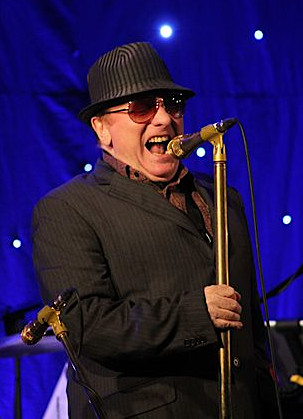
Sir George Ivan Morrison, known professionally as Van Morrison, is a Northern Irish singer-songwriter and multi-instrumentalist whose recording career spans seven decades. He has won two Grammy Awards.
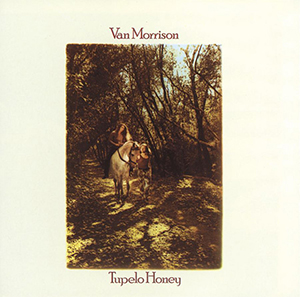
Tupelo Honey is the fifth studio album by Northern Irish singer-songwriter Van Morrison. It was released in October 1971 by Warner Bros. Records. Morrison had written all of the songs on the album in Woodstock, New York, before his move to Marin County, California, except for "You're My Woman", which he wrote during the recording sessions. Recording began at the beginning of the second quarter of 1971 at Wally Heider Studios in San Francisco. Morrison moved to the Columbia Studios in May 1971 to complete the album.

"Too Many People" is a song by Paul McCartney from his and his wife Linda McCartney's 1971 album Ram. It was issued as well as the B-side of the "Uncle Albert/Admiral Halsey" single. It was also included on The 7" Singles Box in 2022.

Saint Dominic's Preview is the sixth studio album by Northern Irish singer-songwriter Van Morrison. It was released in July 1972 by Warner Bros. Records. Rolling Stone declared it "the best-produced, most ambitious Van Morrison record yet released."
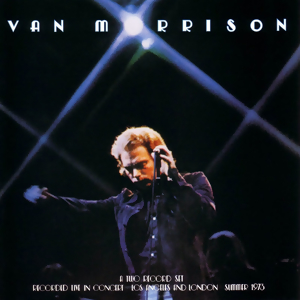
It's Too Late to Stop Now is a 1974 live double album by Northern Irish singer-songwriter Van Morrison. It features performances that were recorded in concerts at the Troubadour in Los Angeles, California, the Santa Monica Civic Auditorium, and the Rainbow in London, during Morrison's three-month tour with his eleven-piece band, the Caledonia Soul Orchestra, from May to July 1973. Frequently named as one of the best live albums ever, It's Too Late to Stop Now was recorded during what has often been said to be the singer's greatest phase as a live performer.
Edward John "Ted" Templeman is an American record producer. Among the acts he has a long relationship with are the rock bands Van Halen and the Doobie Brothers and the singer Van Morrison; he produced multiple critically acclaimed and commercially successful albums by each of them.

Conrad Henry Kirnon known professionally as Connie Kay, was an American jazz and R&B drummer, who was a member of the Modern Jazz Quartet.

John McFee is an American singer, songwriter, guitarist, record producer, and multi-instrumentalist, and long-time member of The Doobie Brothers.

"Wild Night" is a song written by Northern Irish singer-songwriter Van Morrison and is the opening track on his fifth studio album Tupelo Honey. It was released as a single in 1971 and reached number 28 on the Billboard Hot 100 chart. In 2022, the song peaked at #1 on the radio airplay chart in Canada.

"Tupelo Honey" is a popular song written by Northern Irish singer-songwriter Van Morrison and the title song from his 1971 album, Tupelo Honey. The title derives from an expensive, mild-tasting tupelo honey produced in the southeastern United States. Released as a single in 1972, it reached number 47 on the U.S. pop chart.
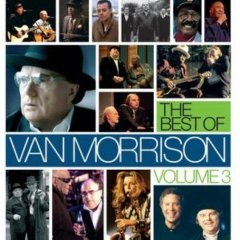
The Best of Van Morrison Volume 3 is a compilation album by Northern Irish singer-songwriter Van Morrison, that was released on 11 June 2007 in the UK with a digital version released in the U.S. on iTunes Store, on 12 June 2007. Manhattan/EMI Music Catalog Marketing released the CD version of the album on 19 June 2007 in the United States. This new two-disc collection of 31 tracks has been compiled by Morrison himself. It offers an overview of his large volume of material since the release of The Best of Van Morrison Volume Two in 1993. The album's thirty-one tracks include previously unreleased collaborations with Tom Jones and Bobby Bland as well as duets with John Lee Hooker, B.B. King and Ray Charles. The 2003 duet with Ray Charles is "Crazy Love" a song originally recorded on Morrison's 1970 album Moondance. "Blue and Green" was previously donated to be used on the charity album Hurricane Relief: Come Together Now, which raised money for relief efforts intended for Gulf Coast victims devastated by hurricane Katrina. The duet with Tom Jones, "Cry For Home" was taken from the same recording sessions that produced the "Sometimes We Cry" duet between the two artists, which featured on Jones' successful album Reload. "Cry for Home" was released as a single on 4 June 2007 in the UK, and was followed by "Blue and Green" on 27 August.
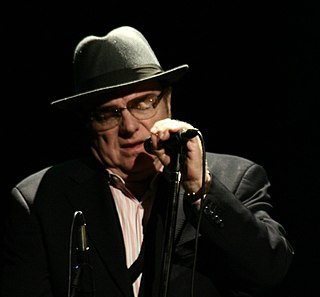
This is the discography of Northern Irish singer Van Morrison.
"Dink's Song" is an American folk song played by many folk revival musicians such as Pete Seeger, Fred Neil, Bob Dylan and Dave Van Ronk, Kate & Anna McGarrigle, and Cisco Houston as well as more recent musicians like Jeff Buckley. The song tells the story of a woman deserted by her lover when she needs him the most.
"Moonshine Whiskey" is a song written by singer-songwriter Van Morrison and is the concluding track of his 1971 album Tupelo Honey.
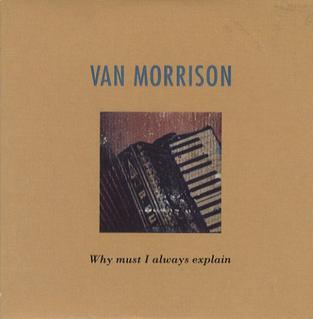
"Why Must I Always Explain?" is a song written by Northern Irish singer-songwriter Van Morrison and included on his 1991 album, Hymns to the Silence. He used the same melody as on his 1971 song, "Tupelo Honey". He has often performed it live in his concerts over the years and occasionally has segued from one song to the next.
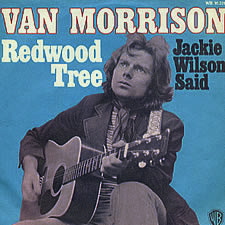
"Redwood Tree" is the sixth song on Northern Irish singer-songwriter Van Morrison's 1972 album, Saint Dominic's Preview, released in July 1972 by Warner Bros. It was later released in October as the second of three singles from the album and charted at number 98 on the US Billboard Hot 100.

Born to Sing: No Plan B is the 34th studio album recorded by Northern Irish singer/songwriter Van Morrison, released by Blue Note Records on 2 October 2012. His first studio album of original songs since 2008's Keep It Simple, it was well received by critics with most reviewers giving it four out of five stars, including Allmusic and Rolling Stone. It debuted at No. 10 on the Billboard 200. It was Morrison's first album since the merger of EMI and Universal Music Group, which consolidated ownership of all his albums from 1984 onward.
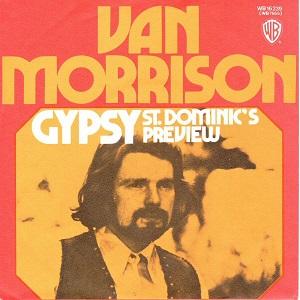
"Gypsy" is a song written by Van Morrison that was first released on his 1972 album Saint Dominic's Preview. It was also released as a single.

"Spanish Rose" is a song written by Van Morrison that was written and recorded for Bang Records owner and producer Bert Berns and released on his 1967 album Blowin' Your Mind! and several subsequent compilation albums. It was also released as one of the follow up singles to "Brown Eyed Girl" and reached #18 in the Netherlands.
















